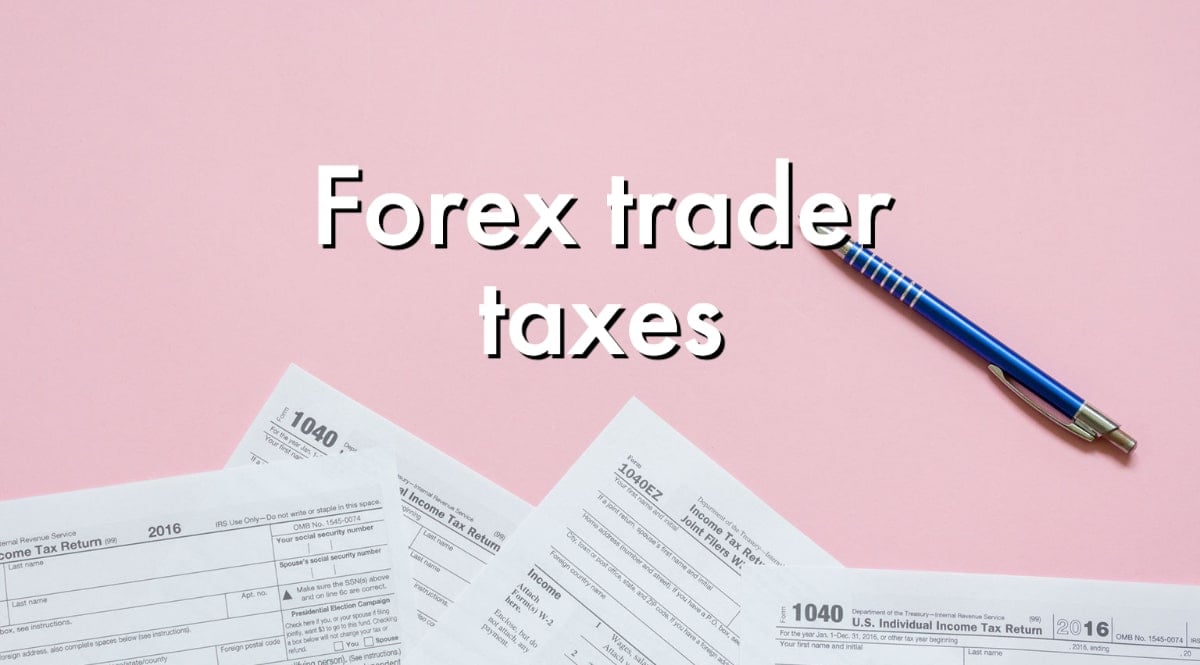Forex trader taxes- All You Need to Know About Paying Taxes
Does a forex trader do a tax declaration? How to report forex earnings? Who is liable to pay Forex trader taxes? How to calculate capital gains? A flat tax or progressive scale? How to use the different reports provided by forex brokers?
These questions are fundamental for the beginner trader who wants to make a living from trading! Tax law clearly distinguishes 2 profiles of forex traders: the occasional trader and the professional trader. Each profile has its own specific rules, particularly concerning the calculation of taxable income, the taxation of long-term capital gains, any allowances, and the declaration of personal income.
Taxation of gains and losses in Forex trading
As you already know, Forex trading is a kind of spread betting. And if you are a winner, you must declare your winnings to the administration.
But if you are a loser, this does not exempt you from declaring your losses. We will see that there are even advantages to declaring losses in Forex.
There are four Income tax brackets:
Income Tax: you pay it on your overall earnings
Corporation Tax: you pay on your limited company earnings
Stamp Duty Reserve Tax: a tax or duty that you pay when you buy shares
Capital Gains Tax: a tax that you pay on your profits from selling assets
In general, tax on Forex trading is simple: gains on forex trading are considered capital gains on the sale of securities. By default, net profits from forex trading are taxed at the Flat Tax. These capital gains are taxable at around 30%.
Forex traders taxes for professional trading – full-time forex trader taxes
If you are a regular Forex trader, your trading operations may be considered professional, and then the taxation differs. In this case, your winnings are not subject to flat tax but are considered Non-Commercial Profits and will be taxed, which is much less advantageous!
When do the tax authorities consider you to be a professional trader?
The law considers as part of a professional activity trading operations carried out under conditions similar to those that characterize an activity carried out by a person engaged in a professional capacity in this type of operation.
The following elements can also lead the tax authorities to consider you as a professional Forex trader:
you have a habitual and regular practice (for example, you place orders every day);
You invest in different markets and different products, and, in particular, you use financial derivatives;
you have trading equipment similar to that of professionals (including, for example, market data subscriptions);
The income from your trading is much higher than your other income.
Also, if you are or have been a financial professional, this will work against you. If you tick these boxes, we recommend that you ask the tax authorities to examine your situation by requesting a tax ruling.
Forex trader’s taxes in the US
In the United States, the taxation of Forex trading is determined by the Internal Revenue Service (IRS). Here are the key points regarding the taxation of Forex trading in the U.S.:
Taxation of Forex Trading Gains/Losses: Forex trading gains are treated as ordinary income for tax purposes. That means they are subject to the same tax rates as other types of ordinary income, such as wages or self-employment income.
Spot Forex: Spot Forex refers to the buying and selling currency pairs with immediate delivery. Profits and losses from spot Forex trading are typically reported as ordinary income on Schedule C of the tax return. Any gains or losses are netted against each other, and the net amount is added to or deducted from other sources of income.
Section 1256 Contracts: Forex trading also falls under the definition of Section 1256 contracts according to the IRS section 1256. Section 1256 contracts encompass regulated Forex options and futures contracts, foreign currency contracts, and options on these contracts. They have their own tax rules, which provide certain tax advantages. Under Section 1256, 60% of profits or losses are treated as long-term capital profits or losses, and 40% are considered as short-term capital gains or losses, regardless of the actual holding period.
Mark-to-Market Election: Traders engaged in Forex trading as a business may choose to make a mark-to-market election. With this election, all gains and losses are reported as ordinary income or losses, similar to the spot Forex market. The mark-to-market method requires reporting the value of open positions at the end of the tax year, regardless of whether they are closed.
Forex traders tax in the UK
In the United Kingdom, the taxation of Forex trading is governed by Her Majesty’s Revenue and Customs (HMRC). Here are the key points regarding the taxation of Forex trading in the UK:
Capital Gains Tax (CGT): For most individuals, gains or losses from Forex trading are typically considered as capital gains for tax purposes. If you are trading Forex in your spare time or as an investment, any net gains exceeding the annual CGT exemption threshold (currently £12,300 for the tax year 2022/2023) will be subject to capital gains tax. The tax rate for capital gains depends on your income tax bracket, with a maximum rate of 20% for higher and additional rate taxpayers.
Trading as a Business: If you are actively trading Forex as a business and it is your main source of income, the tax treatment may be different. In such cases, the profits and losses from Forex trading may be subject to income tax rather than capital gains tax. The income tax rates will be applied based on your income tax band, ranging from 20% to 45% for 2022/2023.
Spread Betting: In the UK, profits from spread betting activities, including Forex trading through spread betting accounts, are generally not subject to capital gains tax or income tax. This is because spread betting is considered to be gambling, and gambling winnings are not taxable in the UK. However, it’s important to note that tax laws can change, and individual circumstances may vary, so it’s advisable to consult with a tax professional or accountant for personalized advice.
Individual Savings Account (ISA): Forex trading can also be conducted through a tax-efficient Individual Savings Account (ISA) in the UK. With an ISA, any profits made from Forex trading are exempt from capital gains tax and income tax. However, there are annual contribution limits for ISAs, and not all Forex trading platforms may offer ISA accounts.
Forex trader taxes: How to declare/pay tax on Forex
So, how to file taxes as a forex trader? The declaration of income from forex trading is the same as that from other savings investments. It all starts with a transaction statement generated by your trading account. In this statement, you will find all the important values for the declaration: net profit, capital, deposits, withdrawals, etc.
For the occasional trader, the flat tax constitutes a system by default. You can always choose to be taxed at the progressive scale of income tax. There are indeed situations where taxation at the tax scale is more advantageous.
The post Forex trader taxes- All You Need to Know About Paying Taxes appeared first on FinanceBrokerage.


































